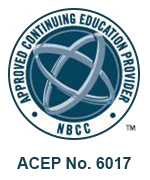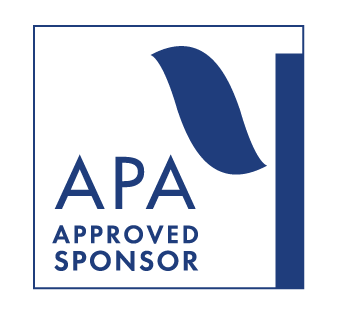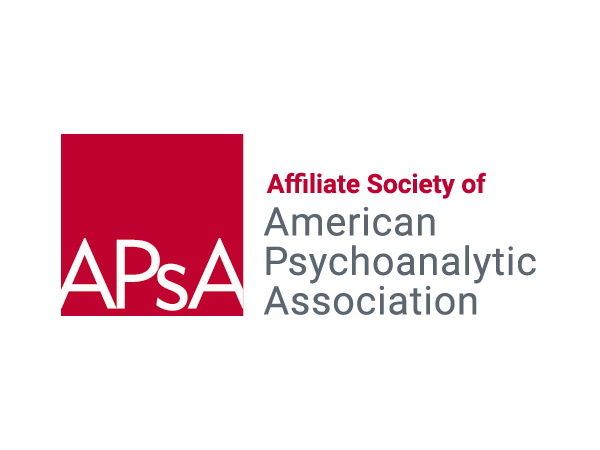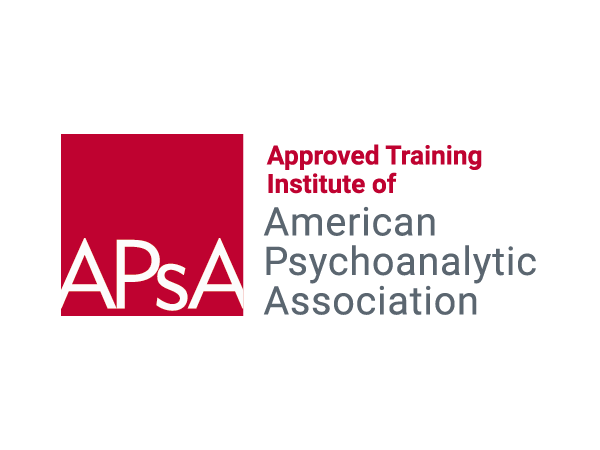Psychoanalytic training program that fosters analytic competency primarily with adults but with options for child analysis within a diverse international student and faculty community
Our next class is planned for June 2027
Thank you to all who have applied to our psychoanalytic training program.
The application process will open again in 2026.
Please email iiptadmissions@theipi.org for more information about the application process or questions about training at the IPI.
We highly recommend enrolling in our Infant Observation seminar while you are waiting for the psychoanalytic class to open.
Infant Observation is a co-requisite of our analytic training and needs to be completed prior to graduating from our psychoanalytic program.
Program Overview
The International Psychoanalytic Training Program (IIPT) was conceived in 2003 and has been a trailblazer in fostering analytic competency within an internationally diverse student and faculty community. IIPT is a central constituent of a broad psychoanalytic psychotherapy community at the International Psychotherapy Institute that fosters interdisciplinary and cross-cultural studies, and learning from experience in affective learning groups in an open system.
The International Institute Psychoanalytic Training (IIPT) at the International Psychotherapy Institute (IPI) offers a four-year (minimum) psychoanalytic training program in adult psychoanalysis. The analytic training operates within and augments the existing learning matrix of IPI that includes weekly seminars, clinical case presentations, weekend conferences, IIPT summer institutes, and experiential affective learning groups. Such groups augment traditional analytic training tripartite models that are anchored principally in didactics, supervision of analytic training cases, and a personal training analysis. The small groups provide a deeper immersion in the study and process of becoming an analyst as a “fourth pillar” for the tripartite model of analytic training (Bolognini, 2016; Scharff, J. and Scharff. D., 2017) Bolognini, S. (2016). Email to all IPA members and candidates, January 29, 2016. Scharff, J. S. and Scharff, D. E. (2017) Group affective learning in training for psychotherapy and psychoanalysis. International Journal of Psychoanaysis98(6):1619-1639.
IIPT holds that psychoanalysis ‘in the room’, (4-5x weekly), is the standard for candidate training cases. When ‘in the room analysis’ is not possible for a variety of extenuating factors, phone or teleanalysis with a webcam session may be held in consultation with and agreement from the committee of Supervising Analysts. Even when such permission is granted, IIPT expects that a significant number of sessions should be ‘in the room’ sessions. This raises the question of what constitutes ‘significant number’. In the spirit of a psychoanalytic position, this decision will be determined on the merits of each specific case based upon the therapeutic needs of the analysand and the capacities, training and accessibility of the candidate and the supervisor. Meeting these requirements is periodically reviewed by the Supervising Analysts as the candidate progresses throughout their training. The candidates gain competency in conducting onsite and online analysis through their didactic seminars, clinical experience and supervision. The Supervising Analysts are trained in the competencies for both modes (onsite and online settings) by completing an extensive preparatory course before qualifying as supervisors. IIPT emphasizes the importance of conducting a close-in examination of the impact of, and differences among, various online and onsite settings when a training case is conducted as a hybrid analysis. The didactic seminars are offered in a combination of onsite and/or online via secure Zoom through hybrid conferences and summer institutes held throughout the academic year.
Program Chair
Jane Garbose, MA, LADC
Why choose analytic training at the IIPT?
Unique Aspects:
- Competency in conducting analysis in onsite and online settings, and in comparing the theory and techniques applied to each setting
- Training by faculty and supervising analysts who have trained in teaching and supervising onsite and online, and in conducting analysis onsite and online
- Utilizes the Group Affective Model of training within a small group
- IIPT faculty study the process of teaching and learning, and provide evolving educational experiences based on continuous feedback from candidates and faculty
- IIPT Supervising Analysts complete an extensive supervision training to qualify which includes curriculum versed in working ‘in the room’ and online both as faculty and analysts
- Supervision is available in English, Spanish and possibly other languages
- Access to adjunct analysts from around the world for the third training case
- Candidates have the right to choose one’s own analyst, if eligible, in any state or country. Analysts must meet IIPT standards for approval to analyze candidates (5 years post graduate from an accredited or APsA or IPA approved psychoanalytic institute. Approval review by IIPT Supervising Analysts)
- All analytic candidates complete an Infant Observation training program
- Membership in a community of psychoanalytic therapists and scholars
- Free attendance at our Master Speaker Series videoconference, Foundations of Psychoanalytic Couple Therapy videoconference, and our Special Topics lectures.
Past Candidate Endorsements
What IIPT candidates have said about analytic training at IIPT…
“It saturated my mind and experience—it really took over my life and thinking for three years—and from that place, I felt a depth and breadth of learning from experience that I had not had before.”
“It has changed my life, and it has changed my patients’ lives. Other people knew it before me.”
“IIPT studies the differences between onsite and online analysis and examines the indications and contraindications for online treatment. This careful approach was a real asset in my training that was difficult for me to find elsewhere.”
“I waited ten years for this institute to form because I wanted analytic training to be the kind of challenge that it turned out to be–not just a cookie cutter academic formula, but the chance to truly stretch and grow as a professional and a person.”
“I am so glad I trained at IIPT given that our rapidly evolving digital culture expects analysts to be competent in conducting online analysis and not only onsite treatment.”
Theoretical Orientation and Focus
The aim of the IIPT is to provide candidates with an in-depth process of analytic exploration as applied to personal growth, professional development, clinical practice, and teaching and writing so that they can join the community of scholars and make contributions to the field of psychoanalysis. This course of study attempts to show the progress of psychoanalysis from a classical approach begun in the late 19th Century, to its current state of diversity in the 21st Century. The Institute provides a basis for understanding the foundations of psychoanalytic concepts in relation to contemporary object relations and other approaches and creates opportunities for in-depth exposure in chosen areas. The focus is on the analytic pair of analyst and analysand. This focus is embedded in the IPI commitment to respect all the modalities of psychotherapy, form the practice of which psychoanalysis can learn more about the person and the unconscious, and to which the in-depth studies of the analytic pair can contribute insight. The psychoanalysis that we teach is enriched by experience with, and understanding of, the unconscious dynamics of families, groups, and organizations.
Analytic Training Program Components
Pre/Co-Requisites*
- 1 year of an Infant Observation seminar
- A minimum of 30 hours training in couple, family, and/or child therapy at IPI
- IPI’s Object Relations Theory and Therapy Certificate Training Program (the “Core” Program” or its equivalent.
*Please note: The cost for pre/co-requisite courses is not included in the IIPT tuition
Coursework
Together the curricula amount to approximately 600 credit hours of instruction over a minimum of 4 years of formal lectures, reading seminars, technique and process seminars, case discussion groups, clinical case presentations, 4 week long summer institutes, weekend conferences, small affective learning groups.
- 12 IPI weekends (3 per year over a minimum of 4 years)
- 4 summer institutes (1 week each June over a minimum of 4 years)
- A weekly Zoom seminar in analytic theory and technique on Tuesdays (time TBD), September-June during each of the four years
IPI weekends and IIPT summer institutes will have online attendance options for those who are unable to travel.
Case Work
3 training analyses of analysands treated 4-5 times a week, on the couch (unless clinically contra-indicated), to be determined privately between the Supervising Analyst and candidate.
Two cases for 2 years (340 analytic session hours in consultation with a Supervising Analyst for 80 hours each)
One case for 1 year (170 hours analytic session hours with a Supervising Analyst for 40 hours)
Total – 200 hours of supervision
Graduation Requirements
Candidates must show mastery of all program components before graduating. Those who require more time to meet requirements will develop an individual program of study in conjunction with IIPT faculty.
Program Faculty
Nancy Bakalar, MD
Adjunct Faculty
Sharon Blum, PhD
Adjunct Faculty
Ira Brenner, MD
Adjunct Faculty
Monica de Castro Ph.D
Teaching Faculty
Sue Cebulko, PhD
Teaching Faculty
Douglas Dennett, MD
Supervising Analyst, Emeritus Faculty
Sharon Dennett, MSW
Supervising Analyst, Teaching Faculty
Andi P. Eliza-Christie, LPC
Teaching Faculty
Jane Garbose, MA, LADC
Chair IIPT, Teaching Faculty
Pat Hedegard, PhD
Chair Supervising Analyst Committee, Supervising Analyst, Teaching Faculty
Linda Hopkins
Teaching Faculty
Earl Hopper
Adjunct Faculty
Nasir Ilahi, LP
Adjunct Faculty
Ted Jacobs, MD
Adjunct Faculty
Otto Kernberg, MD
Adjunct Faculty
Michelle Kwintner, Ph.D.
Chair Curriculum Committee, Teaching Faculty
Hanni Mann-Shalvi Ph.D
Adjunct Faculty
Karen Mohatt, PsyD
Teaching Faculty, Supervising Analyst
Mary Kay O'Neil, MD
Adjunct Faculty
Daniel Prezant, Ph.D
Adjunct Faculty
Michele Reed, MSW
Teaching Faculty
Matthew Rosa, MD
Teaching Faculty
Robert Rovner, PhD
Supervising Analyst, Emeritus Faculty
Judy Rovner, MSW
Supervising Analyst, Emeritus Faculty
Colleen Sandor, PhD
Teaching Faculty
Lynda Scalf-McIver, PhD
Teaching Faculty
Jill Scharff, MD
Supervising Analyst, Teaching Faculty
David Scharff, MD
Supervising Analyst, Teaching Faculty
Caroline Sehon, MD
Supervising Analyst, Teaching Faculty
Lea Setton, PhD
Supervising Analyst, Teaching Faculty
Karen Sherwood, MSW
Teaching Faculty
Anne Taylor, MSW
Chair Candidate Progression Committee, Teaching Faculty
Stanley Tsigounis, PhD
Interim Chair Admissions Committee, Supervising Analyst, Teaching Faculty
Virginia Ungar, MD
Adjunct Faculty
Yolanda de Varela, PhD
Supervising Analyst, Teaching Faculty
Richard Waugaman, Ph.D
Adjunct Faculty
Janine Wanlass, PhD
Chair Curriculum Committee, Teaching Faculty
Richard Zeitner, PhD
Adjunct Faculty
Continuing Education Credit Hours
Continuing Education Credit (towards licensure) will be the sum of credits awarded for the coursework parts of the program*:
- 12 IPI weekend conferences (3 per year over a minimum of 4 years), approximately 14.5 CEs per weekend
- 4 week long summer institutes (1 each June over 4 or more years), approximately 28.5 CEs per institute
- Weekly seminar 1.5 CEs per seminar
*Many candidates do not complete their training requirements within 4 years. In this case, an independent study is developed which might include a combination of weekend conferences, continuous case seminars, and supervision.
Tuition and Fees
Current annual tuition for the coursework is $4,195 (includes annual membership dues in IPI).
Candidates beyond the 4th year will be required to pay the annual IPI membership fee and tuition costs based on the candidates’ individualized educational plan (eg. seminar, case conference).
Please note: The cost of supervision and personal analysis is additional and not included in tuition.
Limited scholarship funds are available for this training: https://theipi.org/scholarships/
Application
Application for the program and supporting documents may be submitted to:
Stan Tsigounis, Chair of the Admissions Committee, by email (iiptadmissions@theipi.org) or hardcopy via regular mail to The IPI, 6917 Arlington Road, Suite 204, Bethesda, MD 20814, applicants will also receive an upload link by email after submitting the application form.
These documents include:
- Completed application form
- Signed Permissions and Guarantee form
- 2 letters of recommendation from supervisors or other senior colleagues familiar with your clinical work (one from an IPI/IIPT faculty member if possible)
- copy of your resume or curriculum vitae
- copy of your diploma in your clinical field
- copy of your license(s) to practice
- copy of your malpractice insurance coverage (if applicable)
- $50 application fee
IIPT does not discriminate on the basis of race, sex, religion, color, creed, national origin, ancestry, disability, gender, sexual orientation, or age.
Should you have any questions about the program or the application process, please feel free to contact:
Stan Tsigounis, PhD - iiptadmissions@theipi.org
Comments
We welcome your feedback, comments and complaints. Please click on the COMMENTS below to send feedback to the Chair of IIPT. We hope that you will identify yourself so we can contact you to discuss your feedback and complaints but anonymous feedback and complaints are also accepted and reviewed.
Attendance Policy
The IPI is an APA-approved provider (sponsor) of continuing education (CE) credit that specifies standards by which CE credits can be awarded for learning activities. The APA only awards CE credit for actual instructional time, and variable credit for partial attendance may not be awarded. IPI expects 100% attendance for a student to receive CE credit. An enrolled student would not receive credit for the course or program unless the student were to attend all of the classes within that academic year. Attendance records are maintained by the faculty at each class. In the very rare instance when a student would have to miss a class, that student would be expected to complete a make-up assignment with specified learning objectives, as part of IPI’s adherence to APA standards for awarding credit. Missing more than one session or failing to do the homework for the 1 missed session may result in 0 CE credits being awarded.
Membership Benefits
Become a member of IPI at the “Associate Member PLUS”, or “Full Member PLUS” level and you will receive an IPI Zoom Pro account as one of your member benefits.
HIPAA compliant Zoom video accounts are provided for all IPI Associate Member Plus and Full Member Plus memberships. IPI has a HIPAA Business Associate Agreement with Zoom, which provides a HIPAA compliant platform for our accounts. HIPPA compliance is strongly recommended for all internet-mediated clinical work and clinical teaching. The “PLUS” add-on to the IPI membership gives the user the ability to host online meetings with multiple people at the same time. [Current members can upgrade to the “Plus” account and only pay the difference in price from your current membership level.]
Click for IPI Membership and Zoom Account information
Continuing Education Information
The International Psychotherapy Institute, IPI, is approved by The American Psychological Association to sponsor continuing education for psychologists. IPI maintains responsibility for the program and its content. The International Psychotherapy Institute has been approved by NBCC as an Approved Continuing Education Provider, ACEP No. 6017. Programs that do not qualify for NBCC credit are clearly identified. The International Psychotherapy Institute is responsible for all aspects of the programs. The International Psychotherapy Institute is authorized by the Board of Social Work Examiners in Maryland to sponsor social work continuing education learning activities and maintains full responsibility for this program. This training qualifies for Category I continuing education units. The International Psychotherapy Institute is recognized by the New York State Education Department’s State Board for Social Work as an approved provider of continuing education for licensed social workers #SW-0299.
Participants are responsible for verifying that IPI CE credit is accepted by the licensing boards in their own states.





